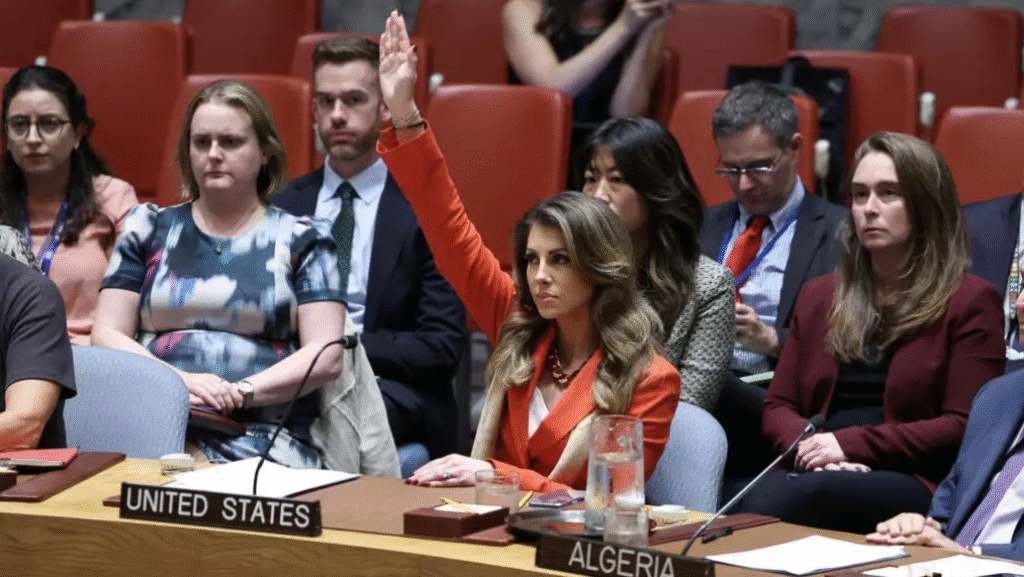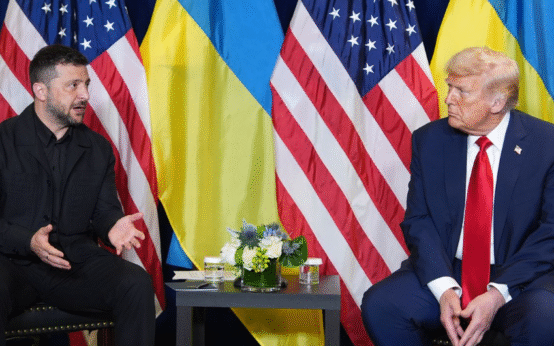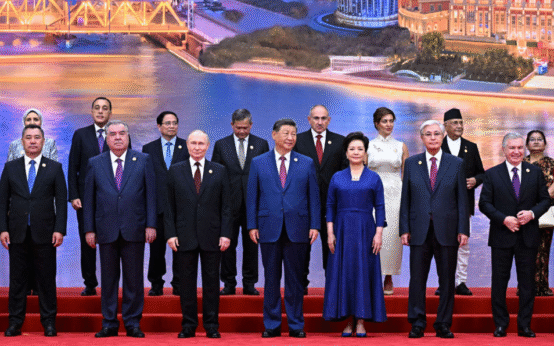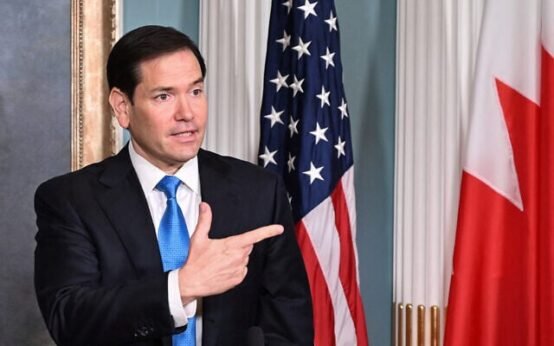United States exercised its veto power at the United Nations Security Council, blocking a resolution that called for an immediate, unconditional, and permanent ceasefire in Gaza. The resolution also demanded the release of all hostages held by Hamas and the lifting of Israeli restrictions on humanitarian aid entering Gaza. Despite receiving support from 14 of the 15 council members, the U.S. vetoed the measure, marking its sixth veto related to the Gaza conflict since October 2023.
U.S. Justification for Blocking the Gaza Ceasefire Resolution
The United States justified its veto by stating that the resolution did not adequately condemn Hamas for its role in prolonging the conflict. Secretary of State Marco Rubio emphasized that the resolution “draws a false equivalence between Israel and Hamas” and fails to recognize Israel’s right to defend itself.

The U.S. also expressed concern that a ceasefire without addressing the threat from Hamas could embolden terrorist activities in the region. The veto reflects Washington’s continued support for Israel’s military operations, despite growing international calls for an immediate halt to hostilities.
Escalating Humanitarian Crisis in Gaza
The resolution highlighted the worsening humanitarian situation in Gaza, where more than 64,000 Palestinians and 1,200 Israelis have lost their lives since the conflict began in October 2023. As a result of ongoing military operations, infrastructure has been devastated; furthermore, these actions have triggered widespread famine. In addition, they have forced hundreds of thousands of people into displacement, compounding an already dire humanitarian crisis.
Hospitals and schools have been heavily damaged, and access to clean water, food, and medical care remains critically limited. Humanitarian agencies continue to call for urgent intervention, warning that the crisis could escalate further if international assistance is not provided immediately.
The U.S. veto underscores its unwavering diplomatic support for Israel, even amid mounting global pressure to halt hostilities. This position has intensified criticism from multiple countries and increased international isolation on this specific issue.
Challenges for the United Nations and Future Resolutions
The U.S. veto demonstrates the challenges the United Nations Security Council faces in achieving consensus on conflict resolution. Member states often hold opposing views on political and security matters, making it difficult to pass resolutions on highly sensitive conflicts like Gaza.
Future efforts will likely require more balanced language, condemning violence from all sides while promoting humanitarian relief and the protection of civilians. Diplomats emphasize that achieving any meaningful ceasefire will require compromise and coordinated international pressure.
With the veto in place, the situation in Gaza remains unstable, and the humanitarian crisis continues to worsen. International organizations are urging countries to work together to provide aid and push for negotiations that protect civilians. Experts warn that prolonged conflict could fuel radicalization and increase instability in the broader Middle East.


 Trump Launches Fiery Attack on U.N. in General Assembly
Trump Launches Fiery Attack on U.N. in General Assembly  Canadians Pull Back from U.S. Trips Amid Border Backlash
Canadians Pull Back from U.S. Trips Amid Border Backlash  South Korea-U.S. nuclear agreement revision gains consensus
South Korea-U.S. nuclear agreement revision gains consensus  Russia and China join forces against the United States
Russia and China join forces against the United States  U.S. Warns Nations Recognizing Palestine Will Escalate Issues
U.S. Warns Nations Recognizing Palestine Will Escalate Issues  Police drag protesters from rails as Israelis rally for Gaza ceasefire
Police drag protesters from rails as Israelis rally for Gaza ceasefire